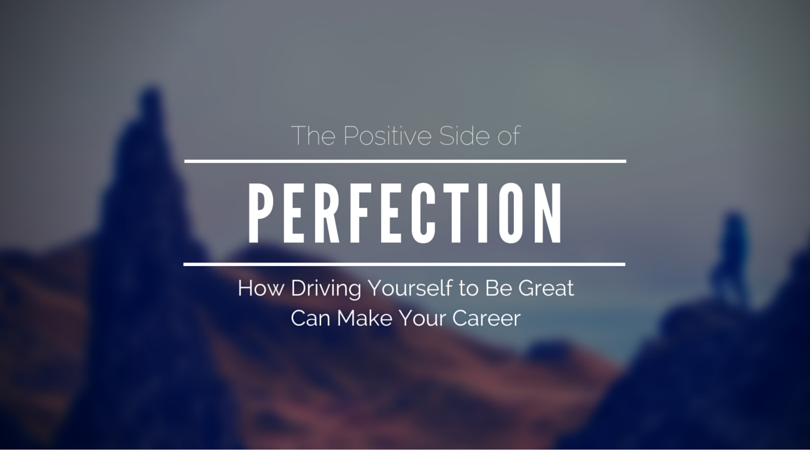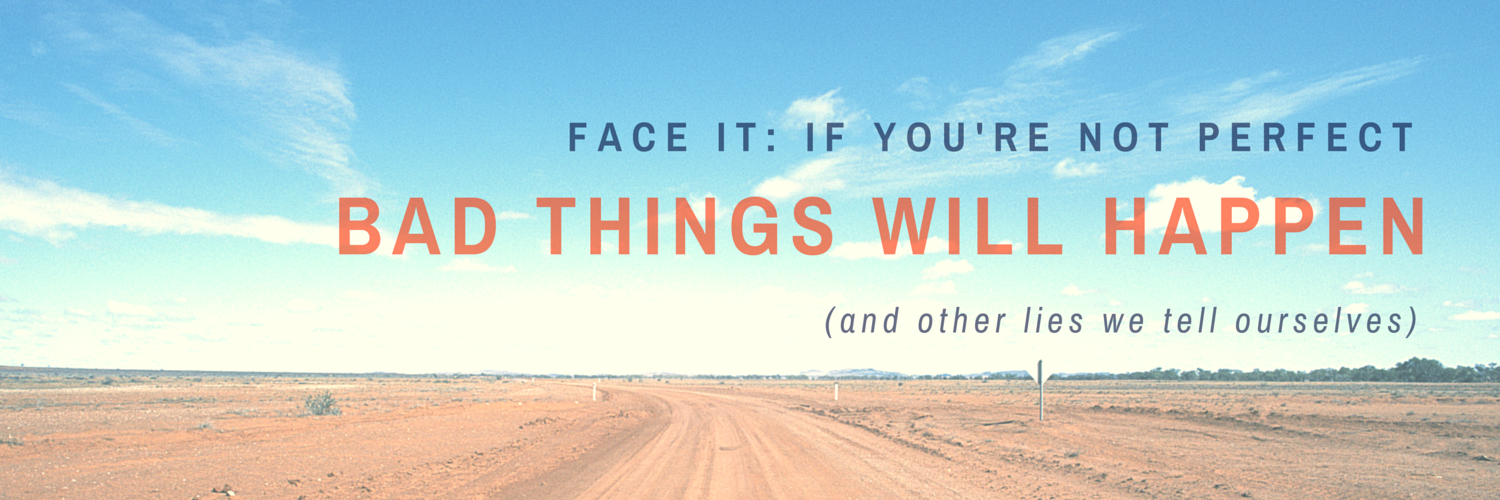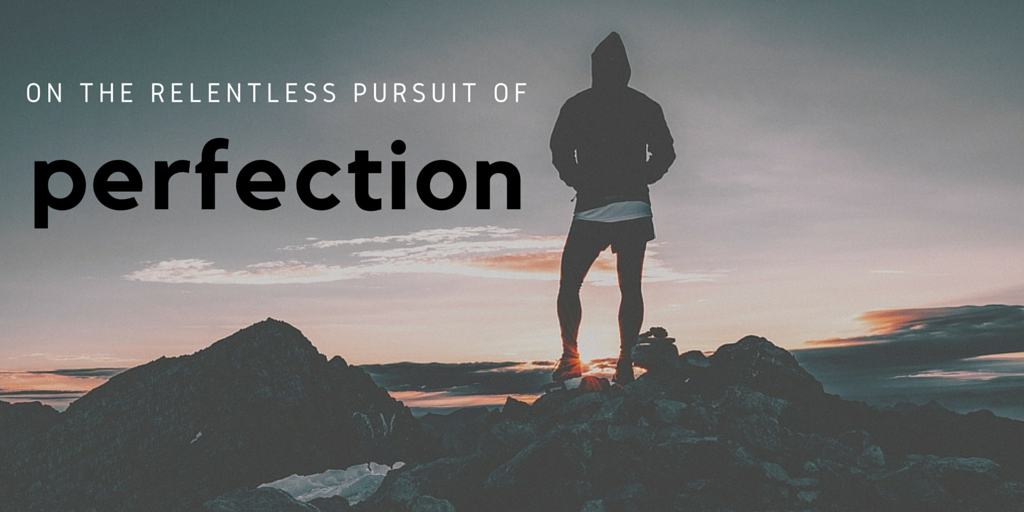5.19.16 - The Positive Side of Perfection
/For the past two weeks, I’ve focused on how a life-long pursuit of perfection has created issues in both my creative and personal lives.
Today, I’d like to turn all of that on its ear.
Because, honestly? Striving for perfection has created great success for me.
The term success in and of itself is subjective. The traditional definition—the accomplishment of an aim or purpose—seems less than the word’s current connotation. Success means so many things to so many people. What is your measure? Is it wealth? Fame? Book sales, reviews, touring? Or something more intrinsic to your happiness—the accomplishment of your aims?
We all measure ourselves by different yardsticks—yardsticks we hold next to someone we’d like to be or emulate, instead of our own shadows.
Think about that for a moment.
When is the last time you looked inward and said, “Hey, I’m pretty awesome!” What did you hear instead? “So and so got a better review/better coop/sold more books/landed that spot in PW…” Or is that just me?
Because I admit it. As much as I try to stay focused, my yardstick does creep away sometimes, to mock me from afar.
I preach—PREACH—to all my writing friends that you absolutely cannot compare your path to another writer's. Everyone’s publishing journey is different. Unique unto them. So your yardstick can only be used to measure yourself. It’s mano e mano—in this case, you against you.
I believe in the individual’s path. But I also understand that without a little healthy competition, sometimes you don’t push yourself hard enough. And there’s a difference between competing and coveting. A huge one.
Competing makes you stronger. Coveting makes you weaker.
And here’s where the relentless pursuit of perfection comes in. Every book I write, I try to improve on the last. Stronger writing, better structure, deeper characters, scarier villains. I don’t want to do the same thing twice, so I experiment. I push myself. I write things and allow them to stay on the page because I know if I trust my subconscious, it will all make sense in the end. I force words onto the page, even when I’m not feeling it.
I create. No matter what—good, bad, mediocre—I create.
And then, in competition with myself and with writers I admire, I push myself to up my game.
I edit the wee word beasties into submission. I push them around like a coach facing an unruly and recalcitrant football team. I scream at them, beg them, cajole and woo. Whatever it takes to get them perfect.
Am I a perfect writer? Hell, no. No way. Not even close. But my personal drive for perfection, to top my previous best, makes me come to the page, day after day after day, and find ways to make it all work. I might drive myself crazy in the process, but I’m all over it. I am living this path. It’s mine, and I love it.
That drive to create, to better each book, to perfect the process, find easier paths to better work, is why I feel like I’m having some success. Do I feel like I AM a success? Not yet. But I am having a decent measure of success in my career now. It’s taken a decade of showing up to the page, Sisyphus with his rock, pounding out the words, for me to feel like a real writer.
There are other people who do this so much better than me. Writers I so greatly admire, because their pursuit of perfection leads them to something I like to call intentionality.
I know several intentional writers. They are not waiting for the writing to come to them. They aren’t letting their careers unfold as they will. They enter into this business mindfully, purposefully, intentionally. They are in complete control of all aspects, from what they write to how they write it, and for whom.
The first who comes to mind is one we all know and love—J.K. Rowling. Look at how she planned out the Potter books. Look at how she took complete control of her career when those books took off. How she held back rights because she knew somewhere down the line, she was going to need them as a negotiating tool. Audio, digital, film—she was careful and deliberate every step of the way. She make the choices that were right for her and her work, and no one else.
Now, JT, you say, Rowling isn’t a good example, because she has so much money she had the power of choice.
OK. I’ll give you that. But I still assert she’s an intentional writer. Come on, she put out a book under a pseudonym to get the story out there unfettered by her success.
Still don’t buy it? All right. Let me give you a case that might strike closer to home. A young writer named Elizabeth Heiter.
I met Elizabeth at a conference last year. We shared a panel, and as always happens, the questions evolved into the typical, How did you get published? At the time, I remember being rather awestruck at how knowledgeable, how intentional, and how focused she was. She knew things as a debut that I’d only learned after several years in the business. You can always tell when a new writer is going to make a career at this. There’s something in the way they talk, the way they approach their career, their work. They’re intentional. Elizabeth is intentional. Read this piece she did about her journey. It will explain what I mean.
I posit that the pursuit of perfection drives us to succeed. While there may be pitfalls, and it’s certainly easy to fall into them, without this desire, without this impetus, there would be no success.
If we didn’t try to top ourselves, to be intentional toward our work and our lives, we’d never create another piece of art.
Last week, I mentioned the scene from the movie Burnt, where the protagonist Adam and his therapist discuss how Adam feels the apocalypse bearing down if he doesn't achieve perfection. Sometimes, the fear of the impending apocalypse does help us. The good that comes from the drive to perfect—the work product, the personal goals met, the ceilings we set for ourselves shattered—are Janus twins, aren’t they? They can crush us, or they can make us.
If you’re lucky, you can use this desire and drive to make your career.
Next time, I’m going to dive into the tangibles of how I set goals and how I reward myself when I achieve them. Until then, I’m curious to hear whether you think the pursuit of perfection is a positive or a negative in your creative life.






